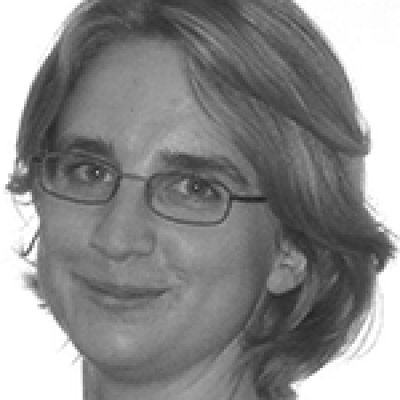Fair Water? exhibition reaches out to schools
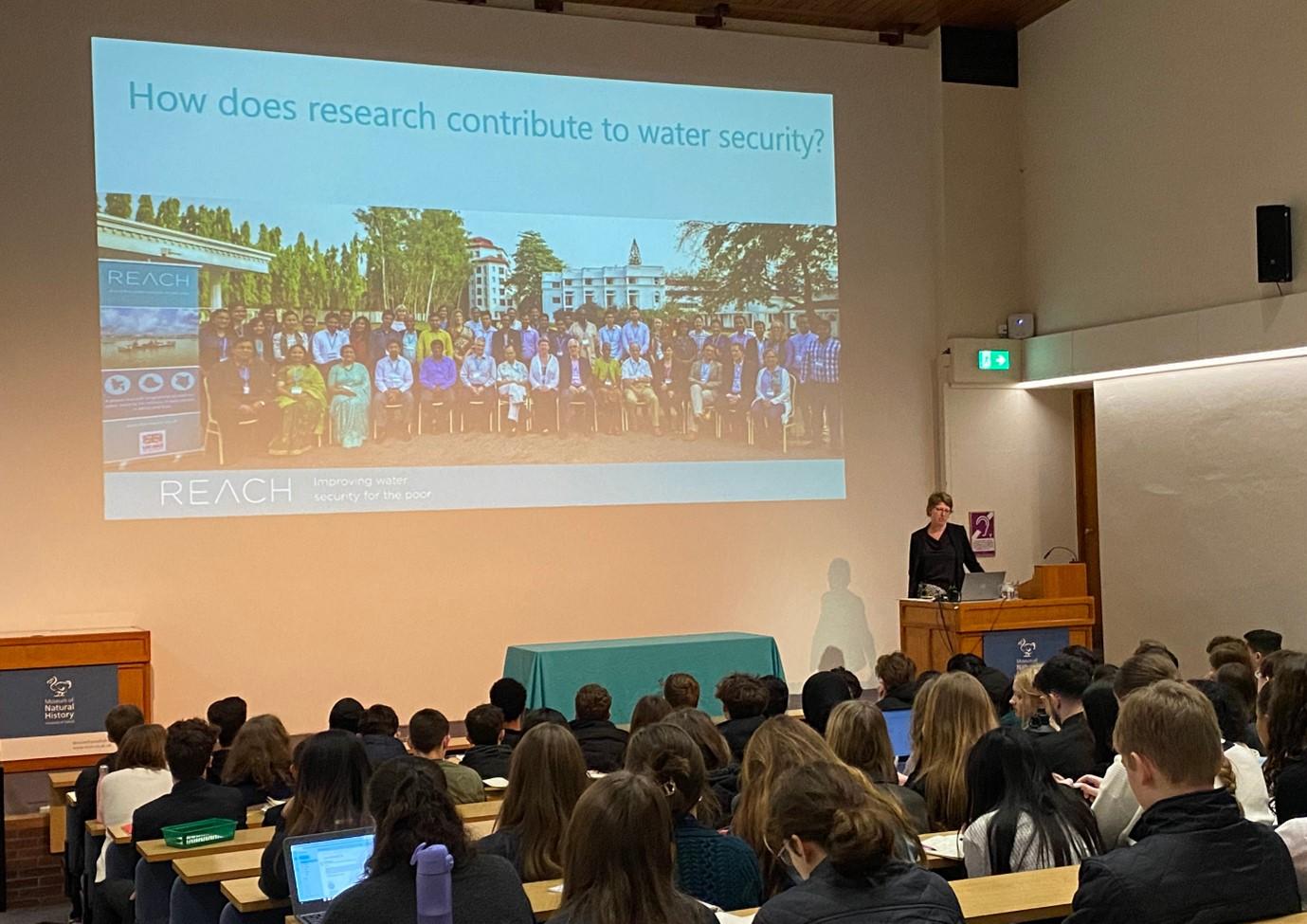
What I love about working with the REACH programme team is their commitment both to education and to using research to address some of the most challenging problems faced by people around the world. These two aspects came together perfectly when the team had the opportunity to share what they are working on with secondary school students at the Fair Water? exhibition Schools Day.
The audience included A-Level and GCSE geography students from Oxfordshire and surrounding counties who joined in person and online, and, with this hybrid format, we were also able to webcast the event to four secondary schools in Cameroon. This connection came through the Water Learning Partnership, a project led by REACH researchers Dr Saskia Nowicki, Dr Patrick Thomson and myself — originally supported by the School of Geography and the Environment Inspiration Fund in 2017-18 and subsequently by the University of Oxford’s ESRC Impact Acceleration Account — to make the most of water as a learning topic in secondary schools in Cameroon.
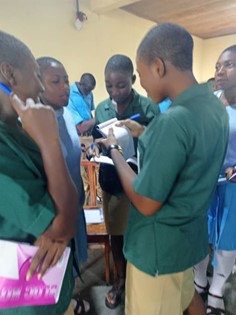
Students from Presbyterian Comprehensive Secondary School Buea and Baptist Comprehensive High School Buea, Cameroon discussing questions for the event speakers.
“…this program has added to our knowledge about the hydrological cycle and how it works; that is the circulation of water from the earth surface to the atmosphere and back to the earth surface and the processes involved in it. We really loved the water cycle animation. This has been imprinted in our minds and it will help us when writing our projects in geography.”
~ Environment Club Report - Presbyterian Comprehensive Secondary School in Buea.
As well as visiting the exhibition - virtually in the case of the Cameroon schools through a video tour led by Dr Johanna Koehler – students attended a series of talks in the Natural History Museum’s lecture theatre. For many students, it was their first experience of a university style lecture with speakers from the REACH programme covering a wide range of relevant topics and case studies. Spending a whole day immersed in one topic was very different from a normal school day and led to a lot of thoughtful questions from participants, provoking further reflections from the speakers on both technical and political approaches to improving water security.
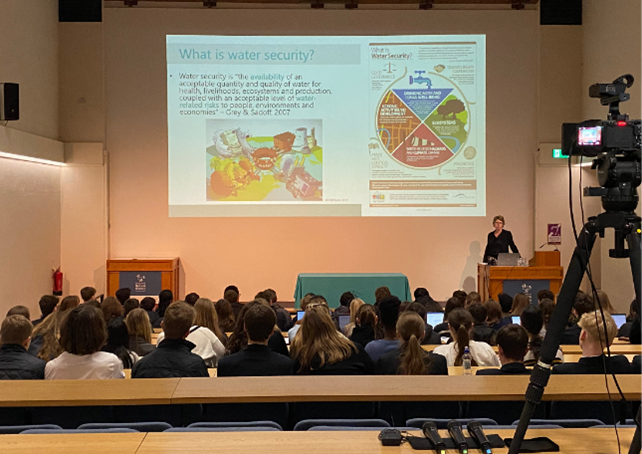
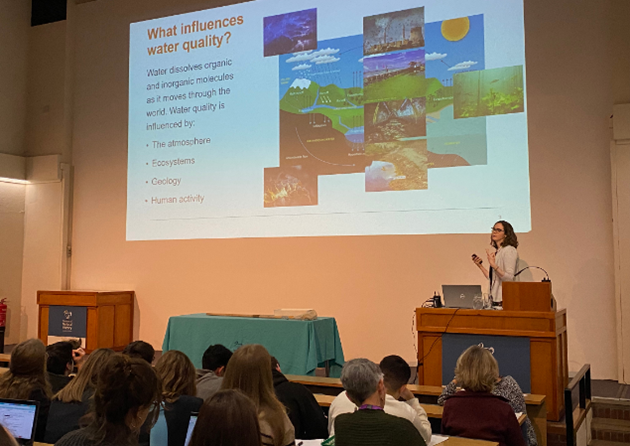
The diversity of speakers offered participants a sense of the University of Oxford’s international partnerships and inclusive ways of working. With the Cameroon connection in mind, we were delighted that Professor Wilfried Pokam Mba from the University of Yaounde I in Cameroon was able to join Dr Ellen Dyer to speak about climate modelling and resilience. In a section on how freshwater macroinvertebrates can be used to assess water quality in ponds, lakes, rivers and streams, we shared examples from Cameroon, Ethiopia, and the UK, including a number of citizen science projects which can enable everyone to get involved with understanding and protecting water quality in the natural environment.
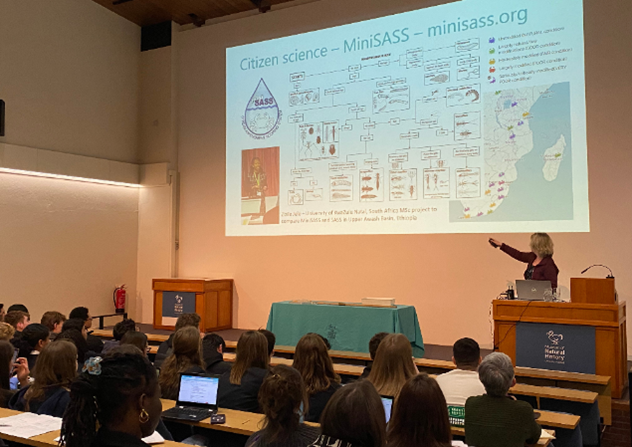
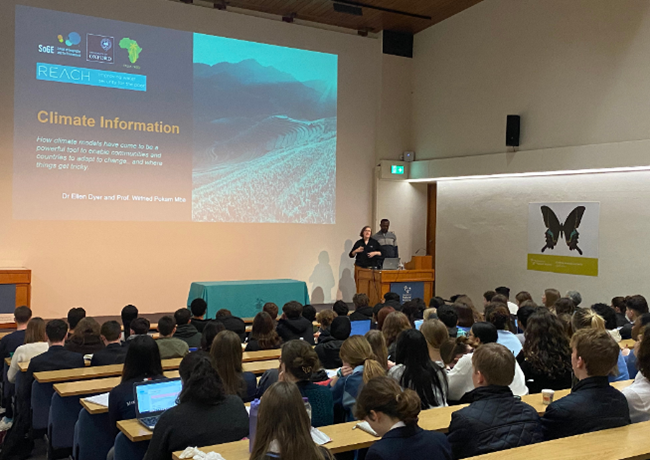
As the REACH programme draws to a close at the end of 2024, we’re all thinking about its legacy. The wonderful thing about educational events with young people is that you never know what it may have sparked in the participants. We hope that the motivated young people that joined us at the museum will leave school well-informed and able to take action on sustainability, and that some will go on to further studies and careers that bring them into positions where they can have a positive influence on water security.
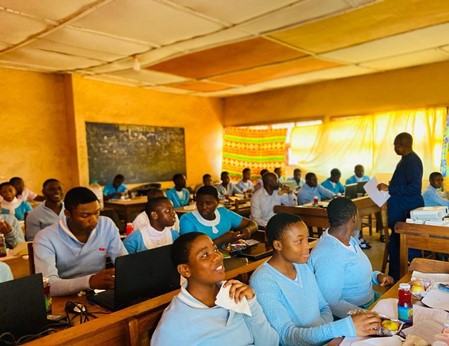
“Thank you to the museum team and the REACH programme for facilitating this event – it was a rare and valued experience for the schools in Cameroon.”
~ Penny Fraser, Education and Training Africa
Fair Water? exhibition reaches out to schools
What I love about working with the REACH programme team is their commitment both to education and to using research to address some of the most challenging problems faced by people around the world. These two aspects came together perfectly when the team had the opportunity to share what they are working on with secondary school students at the Fair Water? exhibition Schools Day.


